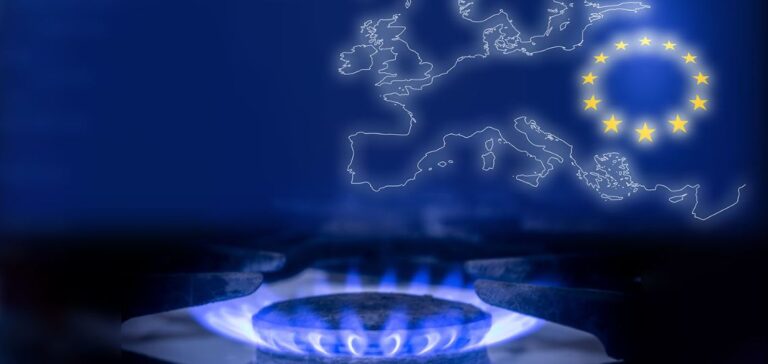European natural gas prices continue to fall, hitting a new low in nearly two years on Thursday, thanks to comfortable storage levels in Europe and rising temperatures curbing demand.
The Dutch TTF futures contract, considered the European benchmark, was trading around 30.09 euros per megawatt-hour (MWh) on Thursday around 16:00 GMT, shortly after touching 29.69 euros per MWh, a price not seen since June 2021. UK gas also hit its lowest price since June 2021 on Thursday, at 67.71 pence per thermie (a unit of heat quantity), down more than 63% since the start of the year. Finally, in the United States, the price of gas has fallen by more than 43% since the beginning of 2023. “The combination of a mild winter, record LNG exports from the United States and subdued demand from the residential and industrial sectors has pushed down European gas prices,” Biraj Borkhataria, an analyst at RBC Capital Markets, told AFP.
Heating demand is indeed the main item of gas consumption for individuals. “Global warming is reducing the demand for gas for heating,” says Bjarne Schieldrop, an analyst at Seb, in a note. Storage levels in Europe are even “close to record levels for this time of year”, Schieldrop confirms. Europe is therefore well on its way to replenishing its stocks before next winter.
The decline in energy prices (gas but also oil, down by more than 10% since the beginning of the year for Brent) had allowed the annual inflation rate in the euro zone to fall from November to March, but it has started to rise again slightly, to 7% in April. Despite the fall in prices, “European inflation is proving difficult to control,” said Edward Moya of Oanda, interviewed by AFP.
Ending the energy crisis
The European Union last week launched its first international tender for bulk gas purchases, in order to obtain better prices to replenish stocks before the winter of 2023-2024. Twenty-five suppliers have already responded to this call. These European “grouped purchases” should help avoid the situation of the summer of 2022, when governments and companies rushed to the gas market at the same time to build up their stocks, fuelling the surge in prices.
But it is mainly a question of the EU trying to prevent a new surge in gas prices, as following the invasion of Ukraine by Russia and the drastic reduction in Russian gas supplies. “Europe’s energy crisis has effectively been interrupted by an exceptional adaptation by the EU following Russia’s invasion of Ukraine,” says Schieldrop. European gas prices had soared to a stratospheric level, reaching 345 euros per MWh in March 2022, the all-time record for the TTF futures contract.
Europe has since been trying to fill its reserves to reduce its dependence on Russia as much as possible, running after alternative sources of supply, convening crisis meetings and calling for energy sobriety. As a result, the Old Continent has managed to significantly reduce its dependence on Russian gas. According to DNB analysts’ estimates, Russia supplied about 40% of European gas imports before the war in Ukraine, compared to less than 10% now.
Since the beginning of the year, European natural gas has fallen by more than 60%, far from its historical record, but still at high levels compared to previous years. In 2020, gas fluctuated around 15 euros per MWh. “Europe is still exposed to risks of demand shocks,” Biraj Borkhataria warns, however, “and storage alone cannot meet increased demand in this eventuality.”






















